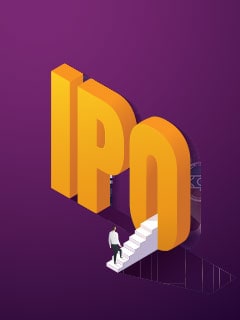CKYC Registry
-
Customer Service Contact us Service request Locate a branch
Find all the help you need
Scan the QR, get our app, and find help on your fingertips

Help CenterSupport topics, Contact us, FAQs and more
-
Login
Are you ready for an upgrade?
Login to the new experience with best features and services
-
Login
Are you ready for an upgrade?
Login to the new experience with best features and services
- Accounts
-
Deposits
IDFC FIRST Bank Deposits
View all Deposits -
Loans
IDFC FIRST Bank Loans
View all Loans - Wealth & Insure
-
Payments
IDFC FIRST Bank Payments
View all Payments -
Cards
IDFC FIRST Bank Cards
View all Cards - Blogs
- Corporate Account
-
Cash Management Services
IDFC FIRST Bank Cash Management Services
View all Cash Management Services - Supply Chain Finance
-
Corporate Lending
IDFC FIRST Bank Lending
View all -
Treasury
IDFC FIRST Bank Treasury
See more details - NBFC Financing
Support topics, Contact us, FAQs and more
- IDFC FIRST Bank Accounts
-
Savings Account
-
Corporate Salary
Account -
Senior Citizens
Savings Account -
First Power
Account -
Current Account
-
NRI Savings
Account -
TASC Institutional
Account -
Savings Account
Interest Calculator
- IDFC FIRST Bank Deposits
-
Fixed Deposit
-
Recurring Deposit
-
NRI Fixed Deposit
-
Safe Deposit Locker
-
FD Calculator
-
RD Calculator
- IDFC FIRST Bank Loans
-
Personal Loan
-
Consumer Durable
Loan -
Home Loan
-
Business Loan
-
Professional Loan
-
Education Loan
-
New Car Loan
-
Pre-owned Car Loan
-
Two Wheeler Loan
-
Pre-owned Two
Wheeler Loan -
Commercial Vehicle
Loan -
Gold Loan
-
Loan Against Property
-
Loan Against Securities
-
Easy Buy EMI card
-
Personal Loan
EMI Calculator -
Education Loan
EMI Calculator -
Home Loan
EMI Calculator
- IDFC FIRST Bank Wealth & Insure
-
FIRST Select
-
FIRST Wealth
-
FIRST Private
-
Mutual Funds
-
Sovereign Gold Bond
-
Demat Account
-
Term Insurance
-
Life Insurance
-
Health Insurance
-
General Insurance
-
Bonds
-
Loan Against
Securities -
Portfolio Management
Service
- IDFC FIRST Bank Payments
-
FASTag
-
Credit Card
Bill Payments -
UPI
-
Funds Transfer
-
Forex Services
-
Pay Loan EMI
- IDFC FIRST Bank Cards
-
Ashva :
Metal Credit Card -
Mayura :
Metal Credit Card -
FIRST Millennia
Credit Card -
FIRST Classic
Credit Card -
FIRST Select
Credit Card -
FIRST Wealth
Credit Card -
FIRST WOW!
Credit Card -
Deals
-
Debit Cards
-
Co-branded Cards
-
Credit Card
EMI Calculator -
FIRST Corporate
Credit Card -
FIRST Purchase
Credit Card -
FIRST Business
Credit Card
- Premium Metal Credit Cards
-
AshvaLifestyle1% Forex₹2,999
-
MayuraLifestyleZero Forex₹5,999
-
FIRST PrivateInvite Only
- Best for travellers
-
MayuraZero ForexMetal₹5,999
-
Ashva1% ForexMetal₹2,999
-
FIRST WOW!Zero ForexTravelLifetime Free
-
FIRST SWYPTravel OffersEMI₹499
-
FIRST Select1.99% ForexLifestyleLifetime Free
-
FIRST Wealth1.5% ForexLifestyleLifetime Free
-
Club VistaraTravelLifestyle₹4,999
-
IndiGo IDFC FIRST Dual Credit CardTravelLifestyle₹4,999
- Max benefits, Free for life
-
FIRST Classic10X RewardsShoppingNever Expiring Rewards
-
FIRST Millennia10X RewardsShoppingNever Expiring Rewards
-
FIRST Select10X RewardsLifestyle1.99% Forex
-
FIRST Wealth10X RewardsLifestyle1.5% Forex
-
FIRST WOW!RewardsTravelZero Forex
-
LIC ClassicRewardsInsuranceShopping
-
LIC SelectRewardsInsuranceShopping
- Reward Multipliers
-
AshvaLifestyleMetal₹2,999
-
MayuraLifestyleZero Forex₹5,999
-
FIRST ClassicNever Expiring RewardsShoppingLifetime Free
-
FIRST MillenniaNever Expiring RewardsShoppingLifetime Free
-
FIRST SelectNever Expiring RewardsLifestyleLifetime Free
-
FIRST WealthNever Expiring RewardsLifestyleLifetime Free
- Rewards & Credit on UPI
-
FIRST Power+FuelUPI₹499
-
FIRST PowerFuelUPI₹199
-
FIRST EA₹NVirtual1% Cashback₹499
-
FIRST DigitalVirtualUPI₹199
-
IndiGo IDFC FIRST Dual Credit CardUPITravelDual cards
- Fuel and Savings
-
FIRST PowerRewardsUPI₹199
-
FIRST Power+RewardsUPI₹499
-
LIC ClassicRewardsInsuranceShopping
-
LIC SelectRewardsInsuranceShopping
- Express and Flaunt
-
AshvaMetal1% Forex₹2,999
-
MayuraMetalZero Forex₹5,999
-
FIRST SWYPEMIOfferMAX₹499
-
FIRST MillenniaRewardsShoppingLifetime Free
- FD Backed rewarding Credit Cards for all
-
FIRST EA₹NVirtualCashback₹499
-
FIRST WOW!Zero ForexTravelLifetime Free
-
CreditPro Balance TransferTransfer & SaveReduce InterestPay Smartly
- IDFC FIRST Bank NRI Forex Solutions
-
Send money to India-Wire transfer
-
Send money to India-Digitally
-
Send money abroad
-
Max Returns FD (INR)
- IDFC FIRST Bank MSME Accounts
-
Platinum Current
Account -
Gold
Current Account -
Silver Plus
Current Account -
Merchant Multiplier
Account -
Agri Multiplier
Account -
TASC Institutional
Account -
Dynamic Current
Account -
World business
Account -
First Startup
Current Account
- IDFC FIRST Bank Business Loans
-
Business Loan
-
Professional Loan
-
Loan Against Property
-
Business Loan for Women
-
Working Capital Loan
-
Construction Equipment Loan
-
Machinery Loan
-
Healthcare Equipment Loan
- IDFC FIRST Bank Business Solutions
-
Payment Solutions
-
Tax Payments
-
Doorstep Banking
-
Point of Sale (POS)
-
Escrow Accounts
-
NACH
-
Payment Gateway
-
UPI
-
Virtual Accounts
-
As per amendment in the Income Tax Rules, PAN or Aadhaar are to be mandatorily quoted for cash deposit or withdrawal aggregating to Rupees twenty lakhs or more in a FY. Please update your PAN or Aadhaar. Kindly reach out to the Bank’s contact center on 1800 10 888 or visit the nearest IDFC FIRST Bank branch for further queries.
-
-
Most Searched
Sorry!
We couldn’t find ‘’ in our website
Here is what you can do :
- Try checking the spelling and search
- Search from below suggestions instead
- Widen your search & try a more generic keyword
Suggested
Get a Credit Card
Enjoy Zero Charges on All Commonly Used Savings Account Services
Open Account Now
Savings and investments are two critical instruments for growing wealth consistently, over time.
However, maintaining the balance between these two can get difficult for first-time investors who wish to make long-term investments and have liquid cash in hand at all times.
READ MORE
What are the major differences between saving and investing?
Investors often regard savings and investments as complementing one another. However, individuals who wish to save and invest must know the important differences between the two activities before starting their savings or investment journey:
Both actions require an individual to open a different type of account:
An individual can open a savings account to start saving on a regular basis. Banks help customers open a bank account online to help them save more. IDFC FIRST Bank’s digital savings account helps customers open a savings account via a paperless account-opening procedure through the video KYC (Know Your Customer) process. On the other hand, individuals must open a Demat account to gain access to most forms of investment.
Savings and investing offer different categories of returns:
A savings account generally offers lower returns when compared to most investment products. The returns earned through investments could be low or high depending on the risk associated with them. Certain categories of mutual funds – small-cap funds, for example – pose a high risk to investors and have the potential to offer higher returns. Investments like fixed deposits (FDs), on the other hand, pose a lower risk and offer moderate-level returns.
Investments can be riskier as compared to savings:
Savings accounts are a much more stable alternative for an account holder. Certain categories of investments, on the other hand, pose a very high risk to the investor, with these investments offering much higher potential returns as compared to the returns accumulated by a standard savings account interest rate. Individuals must decide on an investment objective and conduct a risk assessment of their investment portfolio before taking any investment-related decision.
The expense involved in both activities differs:
Mutual fund investors, for instance, could be required to pay an expense ratio charge or an entry/exit load fee based on the fund in which they have invested. Savings accounts, too, charge several fees from customers in lieu of providing savings-account related services. These fees include NEFT/RTGS/IMPS charges, SMS alert charges, and cheque book re-issuance charges. IDFC FIRST Bank’s “Zero Fee Banking” feature waives 36 such charges, helping the customer save more through their savings account.
An individual must have an emergency fund worth three-to-six months’ income so that they can access liquid funds during an unforeseen financial emergency.
When to save and when to invest to maintain good financial health?
Here is a stepwise procedure that individuals can follow to maintain the right balance between their savings and investments:
1. Opening a high-yield savings account online:
For the first step, individuals should identify a high-interest rate savings account and must prioritise accessibility while choosing it. IDFC FIRST Bank’s mobile banking app helps customers access all banking services 24/7 and also helps them start online investments in no time!
2. Building an emergency fund:
The next step involves preparing for emergencies. An individual must have an emergency fund worth three-to-six months’ income so that they can access liquid funds during an unforeseen financial emergency.
3. Fixing an investment objective and assessing one’s risk appetite:
After building an emergency fund, an individual must fix their investment objective. An investment objective is the short or long-term goal towards which an individual’s investment is geared. It could be saving for an upcoming wedding in the family or planning for a vacation abroad. One must also assess one’s risk-taking capacity to shortlist investments that are better suited for them in the earlier stages. IDFC FIRST Bank’s online SIP calculator can help investors estimate their mutual fund returns on the date of maturity.
4. Investing in an investment scheme consistently:
The fourth step involves investing consistently in the selected investment scheme. Investing through SIPs can help investors develop an investment discipline that can help them grow their returns considerably.
5. Reassessing one’s investments regularly:
Finally, one must constantly reassess their investments to check if they continue to align with their investment objectives.
Using financial calculators such as IDFC FIRST Bank’s online SIP calculator can help individuals plan their investments and decide on the right investment amount and tenure, thereby helping them save more.
Disclaimer
*IDFC FIRST Bank offers Zero Fee Banking on ₹ 10,000 Average Monthly Balance (AMB) Savings Account and higher account variants, subject to maintenance of AMB in the account. These services are being offered free in good faith, and in case of abuse, the bank reserves the right to charge fees as per market norms. All rights reserved.
The contents of this article/infographic/picture/video are meant solely for information purposes. The contents are generic in nature and for informational purposes only. It is not a substitute for specific advice in your own circumstances. The information is subject to updation, completion, revision, verification and amendment and the same may change materially. The information is not intended for distribution or use by any person in any jurisdiction where such distribution or use would be contrary to law or regulation or would subject IDFC FIRST Bank or its affiliates to any licensing or registration requirements. IDFC FIRST Bank shall not be responsible for any direct/indirect loss or liability incurred by the reader for taking any financial decisions based on the contents and information mentioned. Please consult your financial advisor before making any financial decision.
The features, benefits and offers mentioned in the article are applicable as on the day of publication of this blog and is subject to change without notice. The contents herein are also subject to other product specific terms and conditions and any third party terms and conditions, as applicable. Please refer our website www.idfcfirstbank.com for latest updates.























